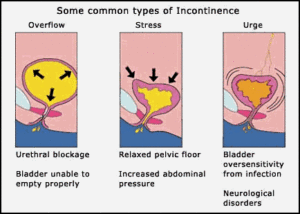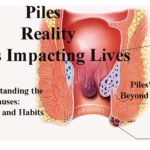Incontinence – Why we need to speak about it? Millions of people silently suffer in shame. Downside of incontinence can be easily remedied by a single conversation. It is shame upon us for not talking.


Many taboo topics in India suffer this fate; and this is precisely why they deserve a conversation. To deny someone the chance to even voice their concerns or problems without judgement or shame is deeply hurtful. The problem compounds when the issue is such, that the sufferer is shamed into silence, knowing that voiced concerns will only pull them down. Even non conformism gives one a burst of confidence, courage and reaffirms their beliefs; a person stands stronger, more righteously, when they have picked their side. Alas, ignorance yields not even this fruit.
Incontinence is one such problem; like the Mind Flayer, it operates from the shadows and reduces a person into a shell of themselves. You may like to think of the above reference as hyperbole, but there is a modicum of truth to it. We have heard first-hand stories of hundreds of individuals who radically changed their lives due to the onset of incontinence, and then again after refusing to confront it.
I believe incontinence should be an issue primed for discussion due to the following 3 points:
1. Key-stone problem: We refer to incontinence as a key-stone problem, i.e: it can cause a myriad ancillary issue if left unaddressed. A key issue amongst them is depression. You can understand why a person would feel deeply ashamed to even bring this topic up. Incontinence also affects nightly sleep cycles; and not getting enough REM sleep is another key-stone problem, leading to a depressed immune system, lowered vitality and reduced energy.


Family events, friends’ meets are all left by the wayside. And usually, the family is completely in the dark about it. They have no idea as to why such deep changes are taking place within an individual, but they cope out of deference or discomfort. How can a 45-year-old gentleman bring up the topic of soiled underwear with his 60-year-old mother? (The conversation can go both ways).
TIP: A great sign to watch for, is if someone has a habit of rushing to the washroom as soon as they enter a home, especially after punching the bell multiple times. It shows an urgency beyond normal levels.
3. Psychologically regressive: Learning to maintain control over our bowels is one of the most fundamental steps in human development. To lose this very control is a deeply regressive step; sufferers usually go to comical lengths to avoid confronting the issue. Every excuse, from “mera problem frequent urination ka hai bhai”, to “beta, yeh toh diabetes ke saath hota hi hai”, is laid down. To confront incontinence is to confront this fundamental lack of control, and people love giving up control yes?
“No man is fit to command others that cannot command himself” – William Penn. And thus, it is only human to shirk away from this cognitive burden, and to let it decay in one’s subconscious as other facets of your personality deteriorate alongside. Thus, with the presence of these major issues, the discussion of incontinence should be a high priority for a family. Almost all cases of successful adult diaper adoption were where the family got overtly involved in the process. The sustained efforts of kids, grandkids and daughters-in-law finally yield results.


To avoid causing this damage in the lives of those who we love should be a strong enough reason for us to take up this fight! Amongst all our users, there remains a story at the forefront of my mind: A Delhi resident, who stays alone at the age of 83, took it upon herself to change the interiors of her house. She designed it herself and supervised the entire process. Why?? Because she acknowledged that incontinence was an issue she was facing and actively sought solutions for it and arrived at the usage of adult diapers.
This had so radically transformed her life, that she deemed that her house should change to match her mind-set. No longer did she want to look upon the same colored walls, and the same damn curtains. Her life had changed, and her house should too. The terrible downside of incontinence can be easily remedied by looking at the other side; and the numerous stories of users who came out of the Mind Flayer’s shadow and remembered how life is right side-up! If a single conversation is what stops this awesome transformation, then shame upon us for not talking.


Kartik Johari
Vice President, Nobel Hygiene











